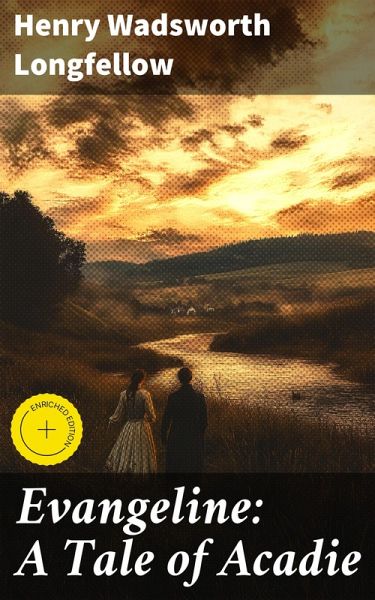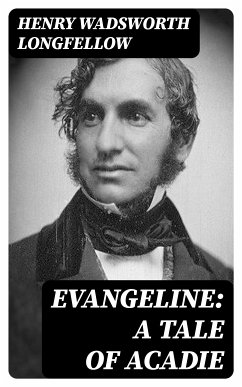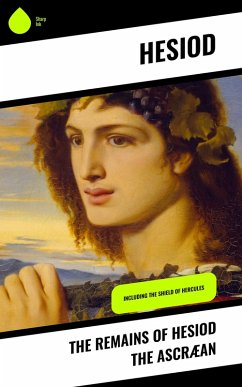
Evangeline: A Tale of Acadie (eBook, ePUB)
Enriched edition. Love and Loss in Acadie: A Poignant Tale of Faith and Hope
Kommentar: Northam, Vanessa / Redaktion: Good Press
Versandkostenfrei!
Sofort per Download lieferbar
1,99 €
inkl. MwSt.
Weitere Ausgaben:

PAYBACK Punkte
0 °P sammeln!
In "Evangeline: A Tale of Acadie," Henry Wadsworth Longfellow crafts a poignant narrative that intertwines themes of love, loss, and resilience against the backdrop of the Acadian expulsion during the mid-18th century. Employing a lyrical narrative style infused with vivid imagery and rhythmic verse, Longfellow elevates the epic poem to new heights, immersing readers in a rich tapestry of history and emotion. The poem's structure, derived from classical epic traditions, reflects the intricate journeys of its protagonists, Evangeline and Gabriel, whose bittersweet love story unfolds amidst the ...
In "Evangeline: A Tale of Acadie," Henry Wadsworth Longfellow crafts a poignant narrative that intertwines themes of love, loss, and resilience against the backdrop of the Acadian expulsion during the mid-18th century. Employing a lyrical narrative style infused with vivid imagery and rhythmic verse, Longfellow elevates the epic poem to new heights, immersing readers in a rich tapestry of history and emotion. The poem's structure, derived from classical epic traditions, reflects the intricate journeys of its protagonists, Evangeline and Gabriel, whose bittersweet love story unfolds amidst the devastating political turmoil of their homeland, highlighting the broader themes of displacement and longing for home that resonate through time. Longfellow, an ardent patriot and deeply empathetic observer of society, drew upon historical events from the lives of the Acadian people and his own experiences as a New Englander. His profound engagement with themes of exile and belonging in a rapidly changing world, shaped by both his scholarly pursuits and personal convictions, lends authenticity to his portrayal of Evangeline's trials. Longfellow's ability to meld the romantic with the historical enriches the narrative, making it a timeless exploration of human tenacity. I highly recommend "Evangeline" not only for its captivating storytelling but also for its profound exploration of cultural identity and the human spirit. This work invites readers to appreciate the beauty of love enduring through hardship, making it an essential read for anyone interested in American literature or the historical struggles of marginalized communities. In this enriched edition, we have carefully created added value for your reading experience: - A succinct Introduction situates the work's timeless appeal and themes. - The Synopsis outlines the central plot, highlighting key developments without spoiling critical twists. - A detailed Historical Context immerses you in the era's events and influences that shaped the writing. - An Author Biography reveals milestones in the author's life, illuminating the personal insights behind the text. - A thorough Analysis dissects symbols, motifs, and character arcs to unearth underlying meanings. - Reflection questions prompt you to engage personally with the work's messages, connecting them to modern life. - Hand-picked Memorable Quotes shine a spotlight on moments of literary brilliance. - Interactive footnotes clarify unusual references, historical allusions, and archaic phrases for an effortless, more informed read.
Dieser Download kann aus rechtlichen Gründen nur mit Rechnungsadresse in A, B, BG, CY, CZ, D, DK, EW, E, FIN, F, GR, H, IRL, I, LT, L, LR, M, NL, PL, P, R, S, SLO, SK ausgeliefert werden.












